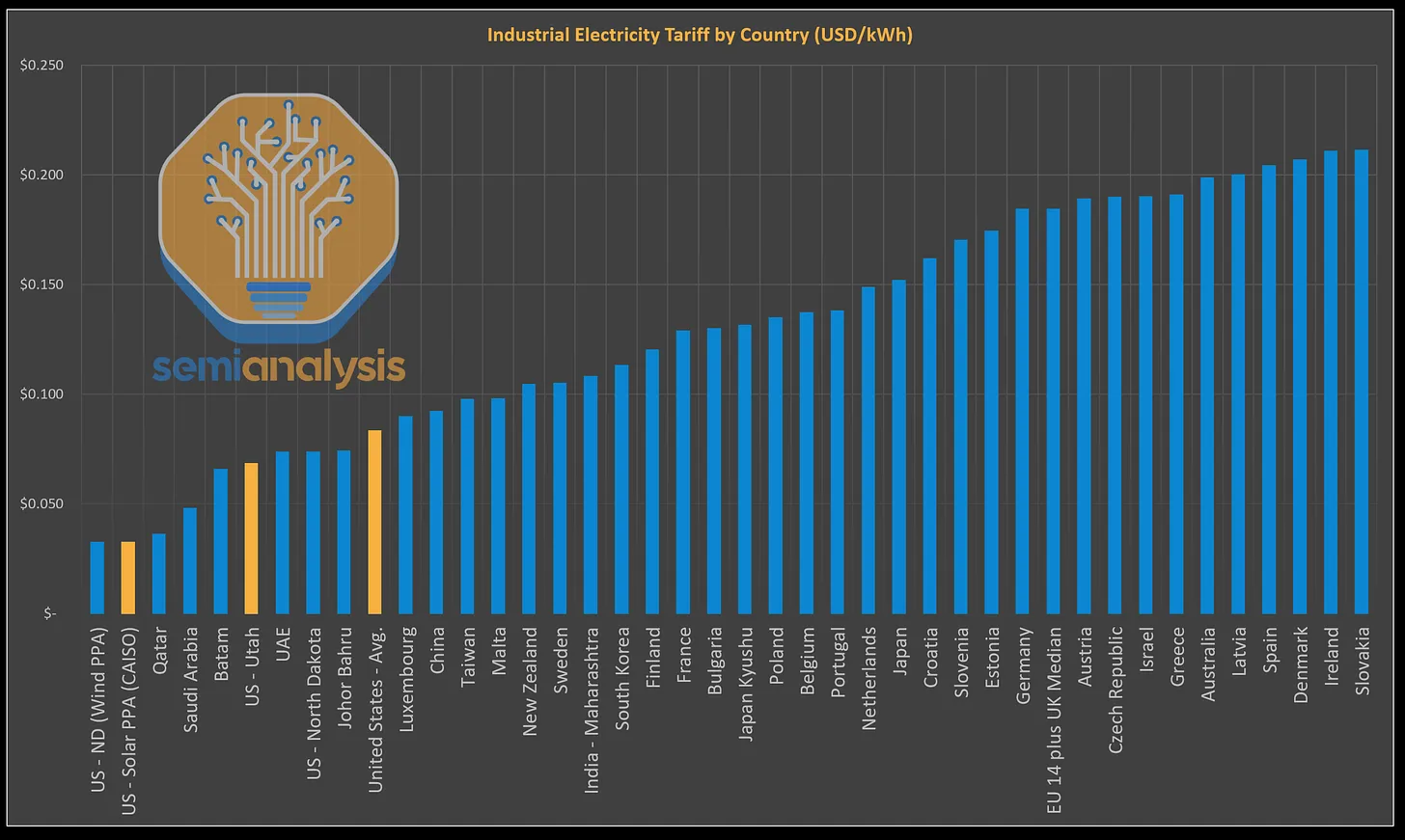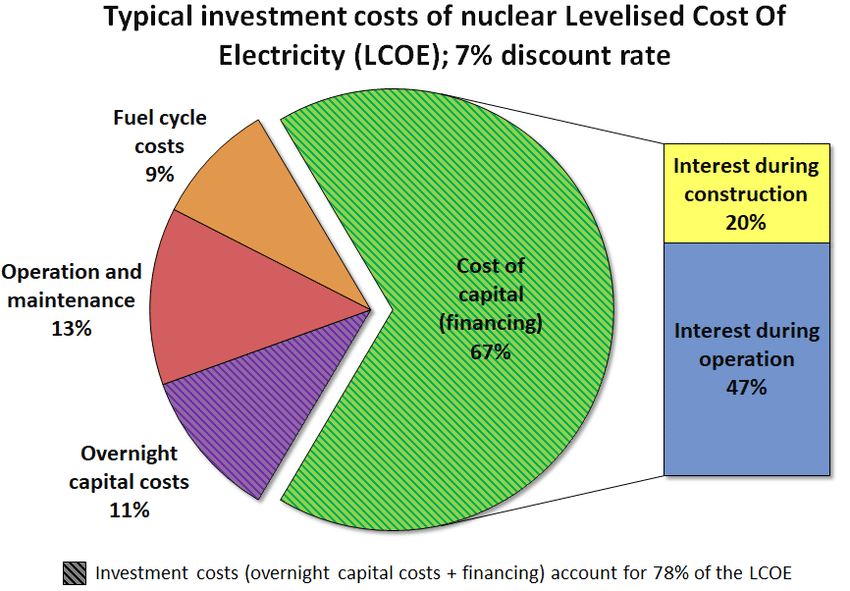002 - links
Energy
The Rise of Batteries in Six Charts and Not Too Many Numbers


- If renewables are so cheap, why are electricity prices going up?
<blockquote> electricity generation is actually getting cheaper but delivering that electricity is getting more expensive. distribution makes up over 2/3 of the cost of delivering electricity (transmission is cheap) </blockquote>
- If renewables are so cheap, why are electricity prices going up?
67% of nuclear Levelised Cost of Electricity (LCOE) is interest payments (src)
Internet
Recently shared this with a friend: Notes on Using Twitter
Largely echoes my experience. With the added emphasis on using Lists (another take) and Tweetdeck (now X Pro) once you have a few Lists.

AI
- Sam Altman Wants $7 Trillion via Astral Codex Ten
- Gemini 1.5 announced, 1 million token context window, early results are very promising
- Combatting deepfakes: Policies to address national security threats and rights violations
- Gemma: Introducing new state-of-the-art open models
- Elad Gil on Things I Don’t Know About AI
- You can now train a 70b language model at home
- Brian Chau: Licensing AI Means Licensing the Whole Economy
- Cognition unveiled their software engineer agent “Devin” and it looks… very competent — no hay trabajo
Semis
AI Datacenter Energy Dilemma - Race for AI Datacenter Space from SemiAnalysis

Comparing global electricity tariffs, the US has among the lowest power prices in the world at $0.083 USD/kWh on average. Natural gas production in the US is abundant and has surged since the shale gas revolution of the early 2000s, which made the US the world’s largest producer of natural gas. Almost 40% of the electricity generation in the US is fueled by natural gas, with low power generation prices chiefly driven by the abundance of dry natural gas production from shale formations.
Japan’s power mix is tilted towards these imported fuel types, with 35% natural gas, 34% coal, 7% hyrdo and 5% nuclear, resulting in average industrial electricity tariffs of $0.152 USD/kWh in 2022, 82% higher than the US at $0.083 USD/kWh. Taiwan and Korea have similar power mixes dominated by natural gas imports and have electricity tariffs of about $0.10 to $0.12 USD/kWh, though this is after $0.03 to $0.04 of effective subsidies given the state owned electric companies have been running massive losses, with Korea’s KEPCO losing $24B in 2022 and Taiwan’s Taipower losing $0.04 USD per kWh sold. Given Europe’s energy situation, the EU average industrial tariff reached $0.18 USD/kWh in 2022, with the UK at $0.235 USD/kWh and datacenter heavyweight Ireland at $0.211 USD/kWh, nearly triple the electricity cost in the US. Like Asia, Europe imports over 90% of its gas in the form of LNG, mainly sourced from the Middle East (and also still from Russia, despite the ongoing war), so their entire industrial base, not just Datacenters, is subject to geopolitical risk, as most readers will vividly remember from the onset of the war in Ukraine.
Social Policy with a Side of Chips from the Cato Institute
The terms and conditions now tied to CHIPS Act funding are not just bureaucratic mumbo‐jumbo; they could actually undermine the subsidies' stated objectives. Most obviously, they’ll impose additional costs on subsidy recipients, potentially diverting finite resources–money, time, labor, etc.–away from producing more chips onshore and toward these other requirements.
As we’ve discussed (repeatedly), “Buy American” mandates are expensive and can add years to federal projects; Davis‐Bacon rules inflate construction costs (especially following Biden administration changes); and restrictions on buybacks or dividends can prevent firms from optimizing their capital structure in the most cost‐effective way (e.g., by switching from equity to potentially‐cheaper debt). PLAs also can raise construction costs by mandating, among other things, the use of union labor, resources, and benefit/pension plans. Childcare and “wraparound” services, DEIA and other “equity” initiatives, “environmental justice” plans, and other strings surely cost money too, as do the armies of employees that’ll be needed to demonstrate compliance with the subsidy award terms.
To the extent that semiconductor firms weren’t already doing this stuff (and if they were, then why mandate it?), requiring them to do so now will mean fewer corporate resources available for producing chips or engaging in new research and development. That’s particularly a concern right now, as the global semiconductor market’s recent collapse has already left major chipmakers more capital constrained (and cutting staff and investments) than they were just a year ago.
Markets
California’s new $20 minimum wage rule will exempt restaurants that sell bread, handing a lucrative break on wages to the Panera chain and one of Governor Gavin Newsom’s longtime allies
Jesse Livermore: “Reminder that the alternative to having markets allocate resources consensually based on economic incentives is to have politicians allocate them by force based on personal incentives”. (link)
Software
A look at JUJUTSU, a version control system coming out of Google. It is to be treated as a new front-end to Git for now (although an alternative back-end exists, author does not recommend it just yet). JUJUTSU revolves around revisions as opposed to commits and functional paradigms.
In Git, as in Subversion and Mercurial and other version control systems before them, when you finish with a change, you commit it. In Jujutsu, there is no first-class notion of “committing” code. […] Instead, Jujutsu has two discrete operations:
describeandnew.jj describelets you provide a descriptive message for any change.jj newstarts a new change.You’d have to be happy being an early adopter to make it worth your time right now (“commit signing with GPG or SSH does not yet work”) although the prospect of an undo buffer is compelling.
Is something bugging you? — new company emerging out of 5 years of stealth from some of the people behind FoundationDB; good for distributed systems (they leverage deterministic event-based simulation) — reminds me of the approach taken by TigerBeetle.
Management
REVIEW: Scaling People, by Claire Hughes Johnson by JOHN PSMITH
Other
REVIEW: The Cruise of the Nona, by Hilaire Belloc

Why Synopsys Bought Ansys (For $35 Billion) — interesting look into computer-aided engineering (CAE), a space I know very little about.
What Problems to Solve - By Richard Feynman
Field Report: Vitalia, The City of Life — Toby Shorin visits Vitalia (a pop-up city on Roatan Island focused on longevity science)
MGMT dropped a new album (Mother Nature is the highlight so far); getting into Interpol (start with Turn On The Bright Lights?)
Tyler Cowen reviews Dune 2—having just seen it, I largely agree.
How does Russia make missiles? - Rhodus Intelligence

The purpose of abstraction is not to be vague, but to create a new semantic level in which one can be absolutely precise -Edsger W. Dijkstra
